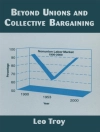Global money laundering transactions are estimated to be $3.5 trillion annually. Although global spending on anti-money laundering compliance was more than $8 billion in 2017, with most countries having adopted anti-money laundering measures, less than 1 per cent of illicit financial flows are seized by authorities. This collection of essays takes an integrated look at money laundering and the challenges facing regulators in the digital age.
The contributors examine the opportunities for money laundering presented by the emergence of new payment methods, such as crowdfunding and mobile payment services, the largely unregulated financial services sector of hedge funds, private equity funds and derivatives, the explosion of online gambling, and the rise of cryptocurrencies and blockchain technology.
The essays show how the anonymity, irreversibility and instantaneous nature of these online transactions, outside of the traditional banking system, make them ideally suited to hide, launder and move criminal revenues.
While highlighting the challenges these digital technologies present, each essay also considers some of the tools regulators have and can use to close down the opportunities for money laundering that continues to keep crime profitable and illegal activities funded.
Cuprins
Part I: Money Laundering
1. An Introduction to the challenges of money laundering
Svenja Berg, Deutsche Bank and Killian J. Mc Carthy, University of Groningen
2. Who runs the laundry?
Killian J. Mc Carthy
3. Money laundering regulation in the European Union
Leonardo Borlini, Bocconi University and Franne Jelske Anema, University of Groningen
Part II: The weak links in the anti-money laundering chain
4. The shadow banking system
Ulrich Andreas Zanconato, ING, Brussels
5. Money laundering, sports betting and gambling
Pim Verschuuren, Institut de Relations Internationales, France
Part III: Digital currencies
6. Bitcoin and money laundering: mining for an effective solution
Danton Bryans, Brannon Sowers & Cracraft, USA and Franne Jelske Anema
7. Cryptocurrency, blockchain and crime
Lennart Ante, Blockchain Research Lab
8. Using blockchain technology for the prevention of criminal activity
Fred Steinmetz, University of Hamburg
Despre autor
Killian J. Mc Carthy is Assistant Professor in the Department of Strategy and Innovation Management at the University of Groningen. He teaches and researches in the economics of strategy, innovation and organisation. He is co-editor of Understanding Mergers and Acquisitions in the Twenty-First Century (2012) and The Nature of the New Firm (2011).












